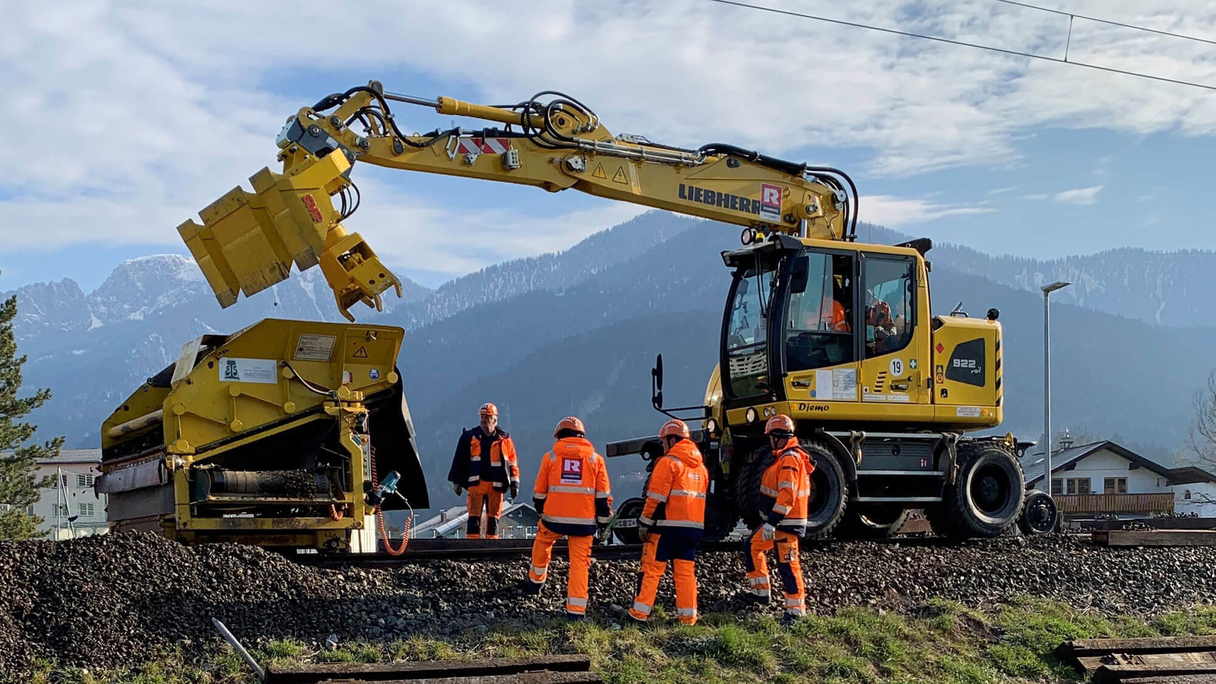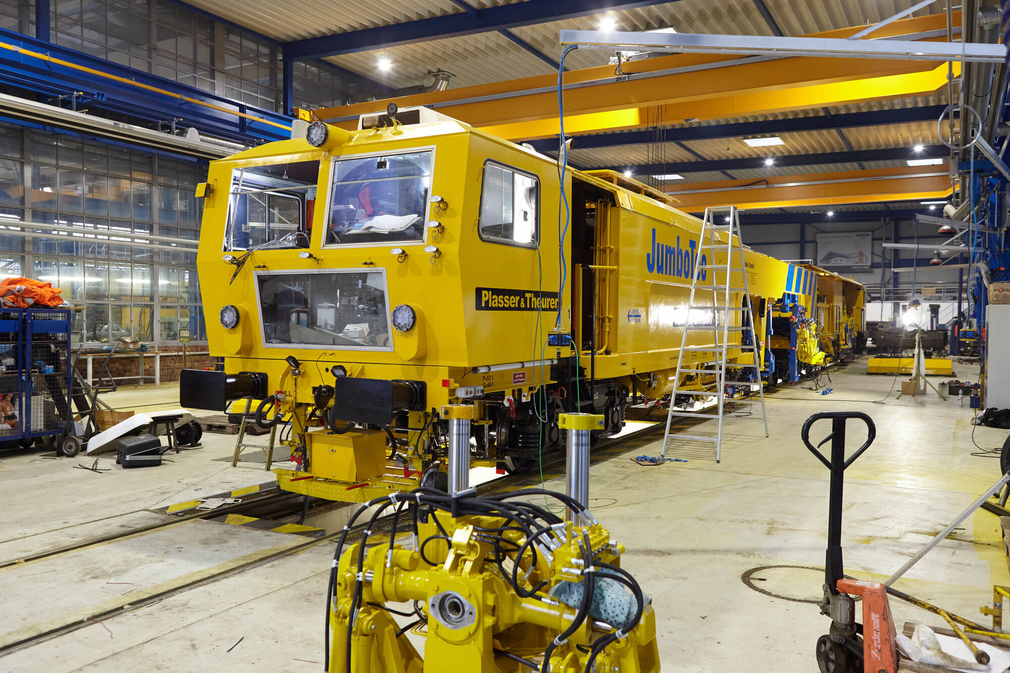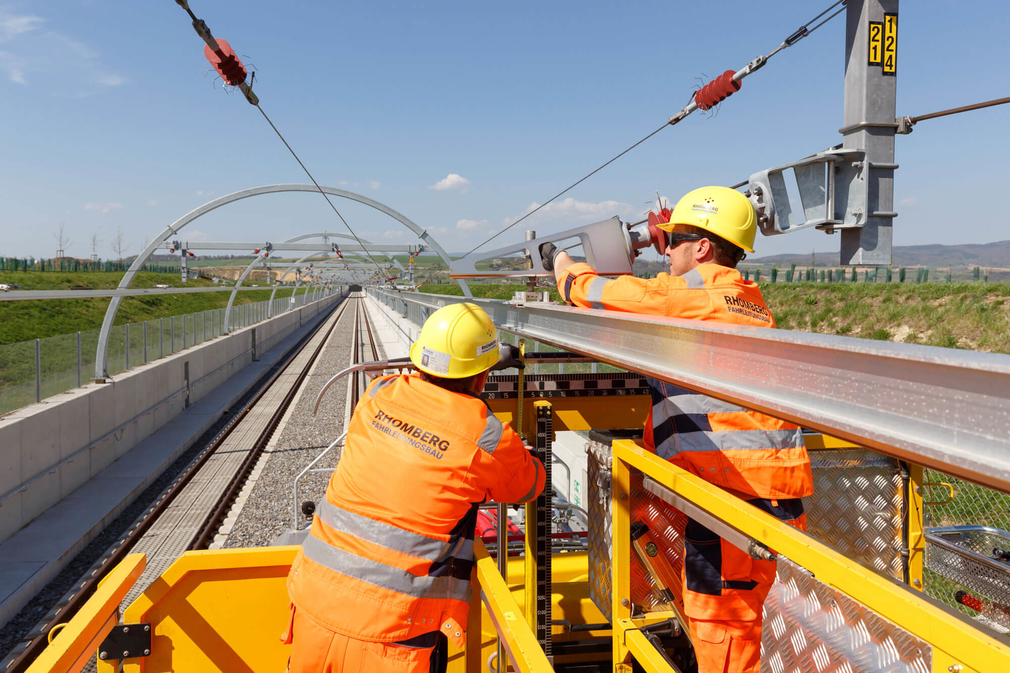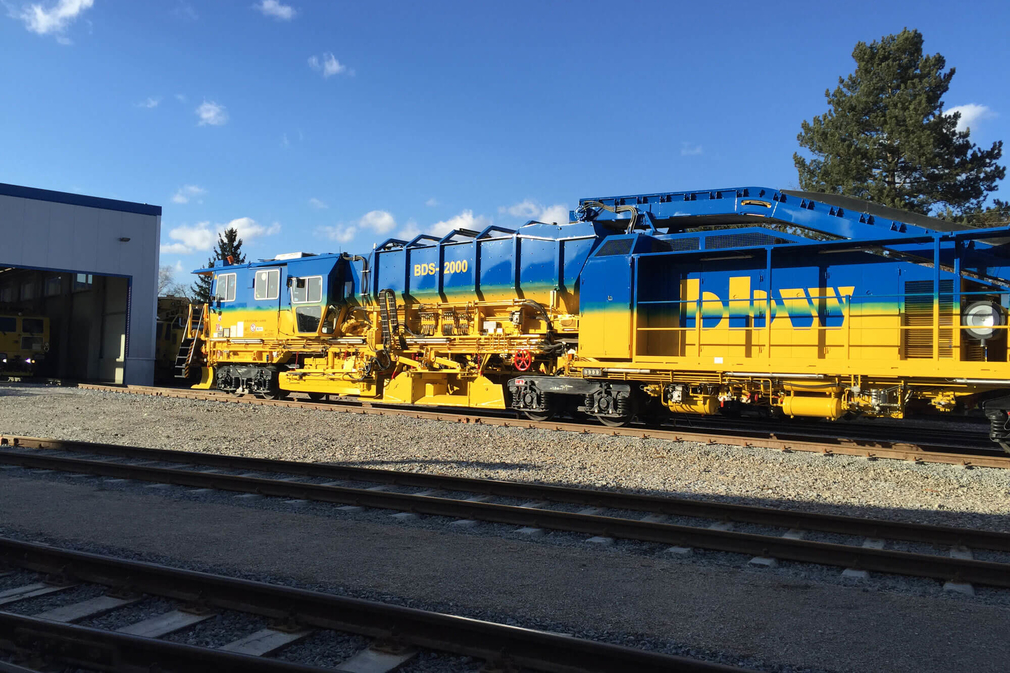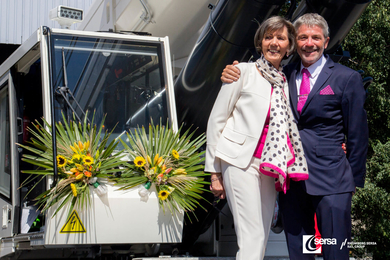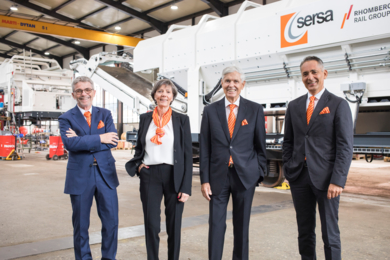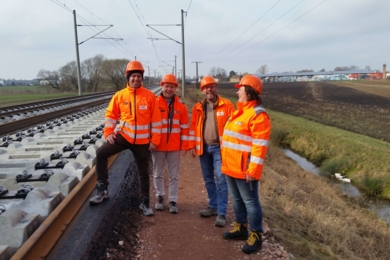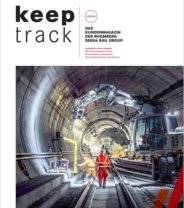10 Years of the Rhomberg Sersa Rail Group, as recounted by Andreas Kiesenhofer, Managing Director of Bahnbau Wels, responsible for mechanised and commercial track construction in Austria and Germany, Market Head for Austria and Southern Germany; with the company since 2001, with the exception of 2009-2010.
I still distinctly remember our first management conference, held on Mount Rigi at Lake Lucerne in November 2012, shortly after the merger of the two family enterprises. All the managers had the opportunity to get to know the owners and everyone could present their area of work. As Rhomberg and Sersa complement each other to a large extent in respect of their areas of activity and the geographic areas they operate in, they were able to adjust well to each other. In our view, it was like an addition to the family. The days at the Rigi were characterised by the personalities of the owners. Hubert was responsible for the evening programme, Konrad did early morning sport with us. This is where the anecdote originated: “These two are there for the company 24 hours a day - one as a morning person, the other as an evening person”. I believe the conference at the Rigi was an emotional highlight for all of us.
A small episode, when a contract was put in writing in an usual way, shows that there was basic trust from both sides: After previous workload considerations, it was decided that Bahnbau Wels would take over the BDS ballast management system from Switzerland. At a management conference, the agreement to transfer the machines was merely written down on a serviette and the purchase was thus confirmed.
Building trust
At first, our daily collaboration was not all that easy and in some markets we first had to build trust. And we had several opportunities to improve in that area. Openness is needed so that units in charge of the construction sites and units in charge of the machinery can work well together. In the last two years there has been a strong move to work together more closely, especially between Rhomberg Sersa Germany and our JumboTec. It gives me great joy to see this. We are all living out our group values better and better. How did we manage this? In spite of the Corona period, we met regularly and got to know each other personally and privately. Together we tried to optimise our ways of working through creative approaches instead of focusing on costs. In turn, the knowledge gained through these processes is applied in new tenders, thereby creating added value. This all takes its time, but in the end it is about the insight: Shared success takes us forward.
Creativity comes from the group
One of the advantages of the group is that we can gain insights of how others do things through the exchange with other markets within RSRG. The creativity in our group is, for example, demonstrated in the new contract model in Cottbus. This contract model comes from the Anglo-Saxon region and is a good alternative for certain construction projects in Austria and Germany. We share ideas like this from other markets with bigger clients - it is important that we shape the future together with our customers. Conversely, we can introduce ideas and models from the DACH region to international markets. The basic thought must always be: We are an owner-managed group consisting of units that are committed to quality and performance and that approach clients individually.
Attracting people who fit in with us
It is important for the future of the group that we attract people who fit well into our company. Anyone who has the money can buy track-laying machines, but it requires a whole team of well-trained employees to maintain and service these machines. Here I see an area where we can be ahead of our competitors. We live values that are attractive in a society of individuals. We appeal to people who want to experience the adventure of track construction, who value freedom and who want to work in an informal, relaxed way. My vision for 2032: The group has the required agility and flexibility to recognise the correct strategies.
